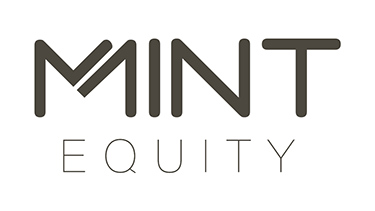Lending criteria for business loans across Australia is usually harder than for other types of financing, partly due to the additional risk carried by the lender. Whether the business loan is for start-up capital and investment in stock or equipment, lenders will want to be reassured of your past and proven performance – that is, your ability to take their advanced money and turn it into more money by making a profit and servicing the loan. Business lending criteria will look at the Directors of the company or proprietors of the business to see if you are stable and can display past good credit.
How to tell if your business needs finance
Cash flow issues
If your business runs low on cash from month to month but your sales pipeline is strong, an overdraft or invoice finance can help create a cashflow buffer for slow or quiet months. The theory behind an overdraft or invoice financing, is that you only use it when you need it and replenish it when times are good. You only pay interest on the amount you use.
Expanding your premises by buying an office, factory or warehouse
If your business has outgrown its current premises and rather than rent your next office, factory or warehouse, you may prefer to purchase a commercial property in your business. Depending on the property, renting part of the property out to another business may help support the mortgage repayments. There are certain tax benefits to your business purchasing property, so it’s always best to speak with your accountant prior to doing so.
Buying equipment or assets to boost revenue
If your business has reached its capacity with the existing equipment or assets, you may need to purchase additional equipment to increase your turnover.
Buying a new business, franchise or competitor
For those who don’t want to start from scratch, buying an existing business or franchise might be an option to scratch your ‘self-employed’ itch. You may also have an opportunity to grab more market share by buying a competitor. We recently secured finance for a client to purchase a major competitor by borrowing 147% of the value of his home. Watch this interview with Zac Peteh, Director of Mint Equity to hear more about how we did it.
What should you consider before sourcing business finance?
Deciding that your business needs finance is just the first step. Before enquiring about finance, there are some things to consider;
- Can your business afford to repay the loan, interest and any one-off or ongoing fees that come with the loan?
- What security can you offer the lender?
- What does the future of your business look like once you borrow the finance?
- How much do you need to borrow?
- What do you want the finance for?
- How long will you need it for?
How do you want to access the funds?
If you need to access the funds on a semi-regular basis to assist with cash flow to keep the business operating 'at call' loans such as an overdraft, line of credit or invoice financing are designed for this purpose.
However, if you need the funds to buy new equipment or even a new business in order to expand your existing business you will need the funds 'upfront'. This provides you with the entire loan amount all at once and is also known as a ‘fully drawn advance’ loan.
Fixed or variable interest rate
The choice of rate will affect the overall cost of the loan and the loan features available. With a fixed rate loan the lender bears the risk of interest rate moves, while with a variable rate your business will hold this risk.
Loan security
Loans can be secured or unsecured by various types of assets, including residential, commercial, rural property or business assets. Alternatively, some loans are unsecured and a director’s guarantee may be the only requirement. Generally the less the assets you provide for security the higher the interest rate will be.
Plan your business, plan your financing
Business finance can seem daunting and business owners may feel their only option is to talk to their current bank to ask for an overdraft. The world of business finance has grown and options are much more comprehensive. When looking at finance solutions for your business, an all-inclusive approach is essential which is why a mortgage broker can assess your current and future situation and provide a variety of solutions from multiple lenders.
Risk assessment
Banks and other lenders will look at your business’ risk profile when considering your loan application. Understanding what lenders look for and what they consider risky will help you present your business in a favourable manner.
As a general rule, lenders look for:
- The level and nature of your security
- Your ability to make regular loan repayments - cash flow risk
- Your ability to ultimately repay the debt - business risk
What should you do next?
If you’ve already spoken to your accountant and they agree that your business needs additional funds to survive and/or grow, speaking with a mortgage broker with proven experience in business lending will help you weigh up your options.

